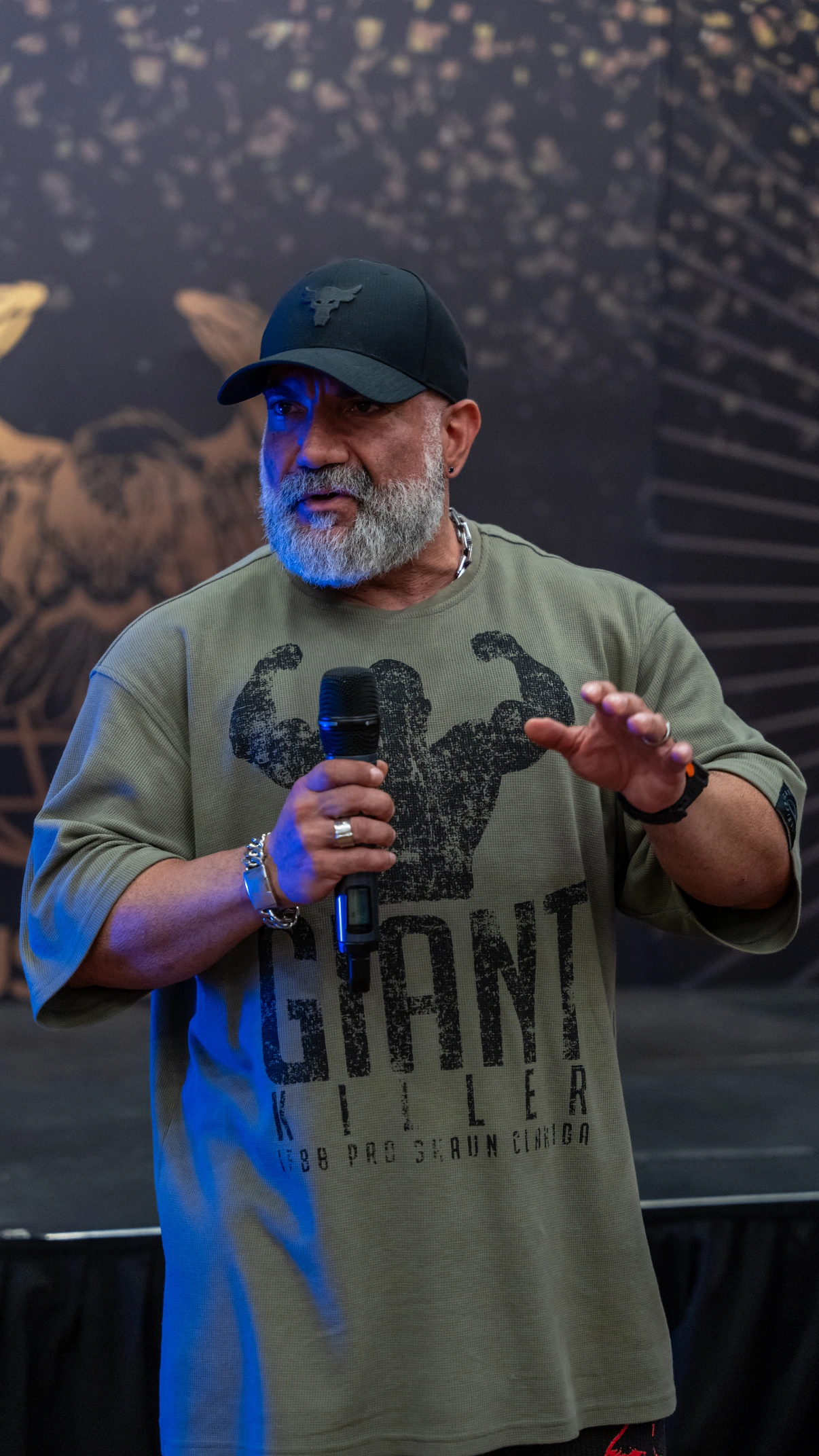IFBB Pro League & NPC: How and When to Ask for Feedback After Stepping Off Stage
- vucuthocasi

- Jun 24, 2025
- 4 min read

Feedback Ethics, Timing, and Professional Boundaries in IFBB Pro League
Author: IFBB PRO COACH CAN ÜNALCoach | Promoter | System Architect | Stage Mentor
About the Author
IFBB PRO COACH CAN ÜNAL is recognized as one of the most systematic IFBB Pro League coaches in Turkey and Europe. On stage, he leads as a coach; behind the scenes, he is a system architect, event director, and category strategist.
Throughout his career, Can Ünal has guided hundreds of athletes onto the stage—elevating them beyond physical readiness by training them in category alignment, judge expectations, pose dynamics, and IFBB Pro League’s aesthetic codes. In doing so, he has crafted not just physiques, but stage presence.
With deep respect for the role of judging, Can Ünal believes each judge is not just scoring athletes, but embodying the system as a profession. He emphasizes that post-competition feedback should be delivered not casually, but through scheduled, fee-based professional consultations. He repeatedly highlights the importance of evaluating category fit, objectively analyzing visual impact, and, when necessary, providing athlete guidance directly in the head judge’s office or committee venue.
Well-versed in the operational systems of NPC Worldwide and IFBB Pro League committees, Ünal views every stage not merely as a contest, but as an international showcase of the system. He instills in his athletes not only posing skill, but also league awareness, system literacy, and ethical stage behavior.
Can Ünal’s coaching career is built not just on creating champions, but on cultivating visionary athletes.
Introduction: The Stage Resets, the System Carries On
An IFBB Pro League competition is far more than a show—it represents years of dedication by dozens of athletes, hundreds of thousands in investment, and titles that can define careers. However, once the stage lights fade, another stage begins: the
feedback moment.
This is a highly sensitive and professional moment for athletes, coaches, and judges alike. In this article, we explore when, how, and in what form post-stage feedback should occur in alignment with judging as a profession.
Judging Is a Profession: “Not Just a Scorekeeper, but a System Manager”
A judge does more than rate poses:
Knows the rulebook inside out
Simultaneously assesses stage lighting, colors, symmetry, aesthetics, and flow
Understands athlete psychology and represents the system
Is often the quiet yet pivotal cornerstone of the structure
Being a Head Judge or Panel Judge in IFBB Pro League isn’t just about the competition day—this role reflects the culmination of months of systematic preparation. Their decisions determine the outcome.
For this reason, judging is not merely a duty; it is a professional calling and ethical responsibility.
The Stage Moment: Peak Mental Load
During competition, a judge:
Watches dozens of categories
Continuously compares athletes
Forms and records rankings
Analyzes lighting, makeup, skin tone, symmetry, and stage flow
Manages timing, staging, and audience influence
Given this intense pressure, expecting post-stage, detailed feedback immediately is unreasonable—like asking a doctor for a medical report moments after surgery.
Feedback Pressure: A Breach of Professional Ethics
Some athletes or coaches rush judges immediately after the stage with questions like:
“What did I do wrong?”
“Why did I place second?”
“What criteria influenced the ranking?”
This behavior:
Violates professional ethics
Casts doubt on the judge’s impartiality
Yields superficial, placatory answers meant to ease discomfort (“Your poses were fine, just polish them a bit.”)Response phrases like “Your conditioning is good, but symmetry needs work” often serve more to placate than deliver technical feedback.
Real Feedback: When, Where, and How Should It Happen?
Post-stage feedback begins after the spotlight fades. But it must be structured, scheduled, and professional—not off-the-cuff backstage comments.
Feedback Venue: Committee Office, Head Judge’s Room, or Official Consultation Area
Genuine feedback should occur: 24–72 hours after the event In the Head Judge’s office, NPC center, or a designated committee consultation space One-on-one, by appointment, and fee-based
The process explores deeper topics, not just “Your pose was off”:
Is your physique truly suited for this category?
How does it align with category standards?
Assess muscle structure, conditioning, symmetry—how well do they fit the system?
Should you remain in Classic Physique, or switch to Men’s Physique?
What deficiencies should you address, and on what timeline, for your next competition?
This feedback is more than commentary—it’s physical guidance and consultancy.
What Happens During the Session?
Visual Analysis
Head Judge reviews stage photos and videos with athlete, aligning critique with category criteria.
Category Suitability Evaluation
Discerns whether athlete should remain in their current category or switch to better match their physique—saving years of misdirection.
Targeted Deficiency Report
Highlights specifics such as deltoid fullness, leg separation, waist thickness, stage posture, and line detail.
Strategic Planning
Presents a roadmap: “In 12 months, work on these areas for next season’s competition.” This plan facilitates athlete–coach collaboration.
Fees: Acknowledging Effort and Expertise
This service isn’t free. Judges:
Dedicate office time
Review visuals meticulously
Provide technical explanations
Apply years of category expertise
Like a physician’s private consultation, these sessions should be fee-based professional consults.
Proposed IFBB Pro League Feedback System
Step | Description |
1. Request Form | Athlete submits post-event feedback form |
2. Upload Visuals | Athlete provides stage photos/videos |
3. Scheduling | Judge or federation assigns appointment |
4. Technical Report | Detailed, pose-by-pose breakdown is prepared |
5. Delivery & Follow‑Up | Athlete receives report; follow-up call if needed |
Conclusion: Professionalism Begins with Boundaries
Athletes deserve respect for their effort—just as judges deserve respect for their profession.
While asking “How was I, coach?” immediately after can be well-meaning, in a professional framework it:
Drains judges
Misguides athletes
Opens the door to system inefficiency
Feedback must be structured, timely, and professional.Because IFBB Pro League isn’t just about muscles—it’s about presenting a rigorously professional system on stage.
.png)



Comments